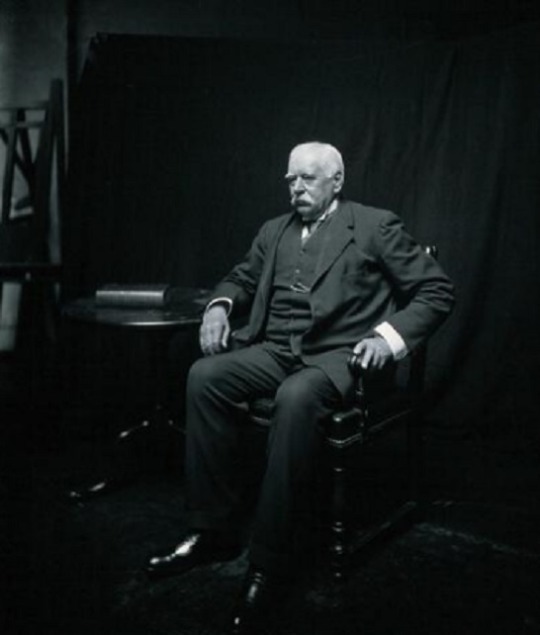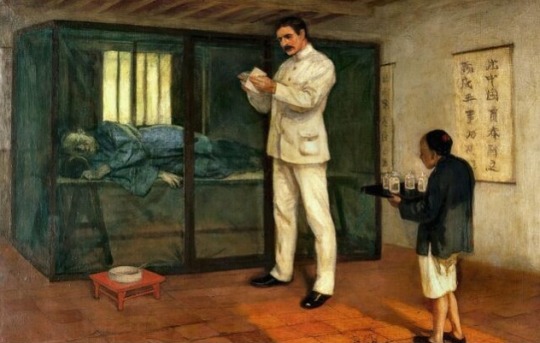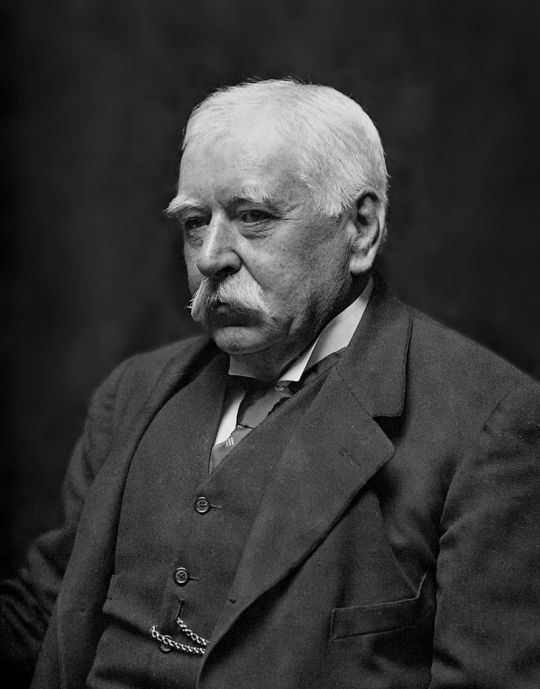#Early Childhood Education in India
Explore tagged Tumblr posts
Text
Early Childhood Education: Key to Lifelong Success
Success

The Importance of Early Childhood Education (ECCDC)
Early childhood education in India is the foundation of a child’s development, covering the critical period from birth to eight years old. During these formative years, the brain experiences rapid growth, and children begin to develop essential cognitive, social, emotional, and physical skills. These skills serve as the groundwork for lifelong learning and overall well-being. In India, the significance of early childhood care and education is increasingly recognized as a crucial element in community development and individual success.
What is Early Childhood Education?
Early childhood education (ECCDC) involves structured programs and activities designed to promote learning and development in young children. These programs are offered in various settings, including preschools, kindergartens, and early childhood community development centers. The goal is to provide children with a safe and stimulating environment where they can explore, learn, and grow. Fostering cognitive, social, and emotional skills during this formative stage is essential, as these experiences lay the foundation for lifelong learning.
Why is Early Childhood Care and Education Important in India?
In India, early childhood education is vital for several reasons. Firstly, it helps bridge the gap between socio-economic disparities by providing all children, regardless of background, with equal learning opportunities. Secondly, ECE plays a crucial role in preparing children for formal schooling, ensuring they are ready to meet academic challenges. Additionally, early childhood education and care contribute to better health outcomes, reduce dropout rates, and increase educational attainment in later years.
The Role of an Early Childhood Educator
Early childhood educators play a pivotal role in shaping young minds. They are responsible for creating a nurturing and inclusive learning environment that encourages curiosity and exploration. These educators use a variety of teaching methods to cater to the diverse needs of children, fostering their cognitive, social, and emotional development. By building strong relationships with children and their families, early childhood educators also support the child’s overall well-being and growth.
Benefits of Early Childhood Education and Its Impact on Long-Term Development
The benefits of early childhood education are both profound and long-lasting. Research indicates that children who participate in high-quality ECE programs exhibit better cognitive skills, including improved language, literacy, and numeracy abilities. Socially and emotionally, these children are more likely to develop positive self-esteem, resilience, and effective interpersonal skills.
Moreover, the impact of early childhood education extends into adulthood. Individuals with a solid foundation in early childhood are more likely to graduate from high school, pursue higher education, and secure stable employment. Furthermore, they tend to have better health outcomes and are less likely to engage in criminal activities. Investing in early childhood education is not only beneficial for individual development but also for societal well-being and economic growth.
The Role of Play in Early Childhood Development
Play is an integral part of early childhood education. It provides natural and enjoyable ways for children to learn and grow. Through play-based learning, children develop cognitive, social, and emotional skills that are essential for their overall development. Understanding the importance of play and its benefits helps parents and educators create enriching experiences for young children.
What is Early Childhood Development Education?
Early childhood development education focuses on the holistic growth of young children, emphasizing the importance of play as a fundamental aspect of learning. Play-based learning supports cognitive, social, and emotional growth by allowing children to explore their environment, solve problems, and interact with peers in meaningful ways.
How Play-Based Learning Supports Cognitive, Social, and Emotional Growth
Play-based learning offers numerous benefits for cognitive development. Activities such as building blocks, puzzles, and pretend play stimulate critical thinking, creativity, and problem-solving skills. Socially, play helps children learn to share, take turns, and cooperate with others, fostering essential social skills. Emotionally, play provides a safe space for children to express their feelings, build resilience, and develop empathy.
How Play Helps Children’s Development
Play is a powerful tool for children's development. It enhances physical skills through activities that involve running, jumping, and climbing. It also supports language development, as children engage in conversations and storytelling during play. Furthermore, play encourages exploration and discovery, helping children understand the world around them.
10 Benefits of Play in Child Development
Enhances cognitive abilities through problem-solving and creativity.
Improves social skills through cooperation and communication.
Strengthens emotional regulation and enhances resilience.
Promotes physical health and motor skills.
Encourages language and literacy development.
Fosters independence and self-confidence.
Supports sensory development and exploration.
Builds empathy and fosters understanding of others.
Enhances attention span and focus.
Provides a foundation for lifelong learning and curiosity.
Innovative Teaching Techniques for Early Childhood Educators
Effective teaching strategies are crucial in early childhood education as they shape how young children learn. By exploring new and innovative teaching methods, educators can create engaging and meaningful learning experiences tailored to the needs of young learners.
What Strategy Works Best with Early Childhood Education?
One of the most effective strategies in early childhood education (ECCDC) is play-based learning. This approach integrates play into the learning process, allowing children to explore concepts and develop skills in a natural and enjoyable manner. By incorporating play into daily activities, educators can create a dynamic and interactive learning environment.
Why Are Teaching Strategies Important in Early Childhood Education?
Teaching strategies are important because they provide a structured framework for educators to facilitate learning. They help ensure that teaching methods are aligned with developmental stages, learning objectives, and the individual needs of children. Effective teaching strategies also promote engagement, motivation, and a love for learning.
New and Effective Teaching Methods Tailored for Young Learners
Innovative teaching methods such as project-based learning, inquiry-based learning, and the Reggio Emilia approach are gaining popularity in early childhood education. These methods encourage children to explore their interests, ask questions, and engage in hands-on activities.
By creating a child-centered learning environment, educators can foster curiosity and a sense of discovery in students. This approach encourages active participation and promotes engagement and motivation. When students feel valued, they are more likely to take risks in their learning.
In such an environment, teachers act as facilitators, creating opportunities for exploration and inquiry, allowing students to pursue their interests and questions. This method nurtures critical thinking skills while supporting social and emotional development and building a positive classroom culture. Collaboration and communication become integral parts of learning, making educators vital in shaping a holistic educational experience and fostering a deeper understanding of concepts.
Strategies and Activities for Teaching Writing in Early Childhood
Teaching writing in early childhood can be enhanced through activities such as storytelling, journaling, and interactive writing. These activities help children develop fine motor skills, aid in letter recognition, and build early literacy skills. Engaging and playful writing activities make learning enjoyable and effective.
Pedagogical Strategies in Early Years
Pedagogical strategies in the early years include a range of approaches that support holistic development. These strategies encompass play-based learning, experiential learning, and scaffolding, where educators provide support and gradually increase challenges as children develop skills. By employing diverse pedagogical strategies, educators can cater to different learning needs, enhance engagement, and foster a love for learning. This variety allows children to explore their potential in a nurturing environment tailored to their learning styles and developmental needs.
Conclusion
The landscape of early childhood education is continually evolving, driven by trends such as the importance of early education, the role of play, and innovative teaching techniques. By embracing these trends, educators can create enriching and impactful learning experiences for young children. Understanding the significance of these trends and their implementation can lead to better educational outcomes and promote long-term development, ensuring a bright and promising future for all children.
0 notes
Text
Easy Parenting Tips by Shri Kamal Mangal. 🌟
Mothers, learn to cultivate patience! 💖
Developing patience amidst challenges: Mothers, take time to reflect on moments of frustration and personal growth with your child. For more tips, keep watching this space. 👩👧✨
#EasyParenting#AhmedabadPreschools#H3Preschools#ParentingTips#Learning#MomLife#Patience#ChildDevelopment#ParentingJourney#Motherhood#earlychildhoodeducation#playgroup#playbasedlearning#toddlers#daycare#sensoryplay#earlychildhood#fun#play#h3preschools
#preschool franchise#preschool franchise in ahmedabad#preschool in gujarat#early childhood education in india#early childhood education
0 notes
Text
The Appropriate Age for Early Childhood Education Enrollment.
As parents, one of the most crucial decisions we face is determining the ideal age for our children to start preschool. Preschool serves as a fundamental building block for a child's education, making it imperative to make the right choice. In 2020, the Indian government introduced the National Education Policy, stipulating that the appropriate age for preschool admission is now 3 years, with children falling within the age range of 3 to 6 years.

In this discussion, we will delve into why this specific age range is considered the optimal time for preschool enrollment.
Exploring the Appropriate Age for Preschool:
Let's commence by examining children aged 3 to 6. At this stage, children undergo significant cognitive, physical, and social development. They display curiosity, a thirst for knowledge, and a readiness to learn. Preschool education capitalizes on this innate curiosity, providing a strong foundation for future learning through various instructional activities, including storytelling, singing, drawing, and play.
Preschool and Cognitive Development:
Research has consistently demonstrated that children who attend preschool exhibit enhanced cognitive and socio-emotional skills. During these formative years, children are still acquiring communication and emotional expression skills. Interacting with peers and educators at preschool helps them learn how to engage, share, and take turns. Furthermore, preschools create a structured environment where children can develop self-control, cooperation, and teamwork.
Moreover, attending preschool has been associated with increased self-confidence, improved academic performance in later years, and better mental health outcomes, including reduced anxiety and fewer behavioral issues in children.
Also Check: Preschools in India
Early Childhood Education: Yes or No?
Now, let's address the question of early childhood education. While enrolling a child in preschool at the earliest opportunity might seem tempting, it's essential to refrain from enrolling toddlers. Toddlers require time with their parents, learning through play, and exploring their surroundings. It's crucial for parents to dedicate quality time to their toddlers and provide a nurturing environment to support their holistic development.
In Conclusion:
The ideal age for a child to enroll in preschool is typically between 3 to 6 years of age. Preschool education lays a solid foundation for future learning, fosters socio-emotional skills, and correlates with improved mental well-being in children. Nevertheless, parents should exercise caution and avoid rushing to enroll toddlers in preschool, prioritizing quality time and nurturing their early development.
Originally Published by HelloParent.
0 notes
Text

The decision to send your child to preschool can be both exciting and nerve-wracking. Preschools provide more than just childcare; they shape your child’s future in ways that extend beyond academics. If you’re considering local preschools, Shanti Juniors offers a distinct advantage
#shantijuniors#preschool in india#education#early childhood education#best preschool in india#holistic development
0 notes
Text
Global Montessori: The Ultimate Destination for Teacher Training Excellence in Gujarat India
In the evolving world of education, the role of a teacher is more crucial than ever. At global Montessori, we understand that a strong foundation in early childhood education is the key to nurturing the next generation of leaders and innovators. Located in Gujarat, India, global Montessori offers comprehensive training programs designed to equip educators with the skills and knowledge they need to excel. Our specialized courses include the teacher training course, early childhood teacher course, and nursery teacher training course.

Why Choose Global Montessori?
Global Montessori is renowned for its commitment to excellence in early childhood education. Our programs are meticulously crafted to meet the needs of aspiring teachers and seasoned educators alike. Here’s why our training courses stand out:
Expert Instructors: Our courses are led by experienced educators who bring a wealth of knowledge and practical insights into the classroom.
Comprehensive Curriculum: Our training covers all aspects of early childhood education, including developmental psychology, classroom management, and innovative teaching methodologies.
Hands-On Experience: We offer practical training opportunities that allow you to apply theoretical knowledge in real-world settings.
Flexible Learning Options: Whether you're looking for full-time or part-time study, our courses are designed to fit your schedule.
Teacher Training Course
Our Teacher Training Course is the perfect choice for those looking to make a significant impact in the field of education. This course covers:
Educational Theories and Practices: Gain a deep understanding of the latest teaching strategies and learning theories.
Classroom Management: Learn effective techniques for managing a classroom and fostering a positive learning environment.
Curriculum Development: Develop skills to design and implement engaging lesson plans that cater to diverse learning styles.
Early Childhood Teacher Course
The Early Childhood Teacher Course is tailored for those who wish to specialize in early childhood education. This course emphasizes:
Child Development: Understand the stages of child development and how to support children’s growth and learning.
Learning Through Play: Discover how to incorporate play-based learning into your teaching practices.
Parent-Teacher Interaction: Learn strategies for effective communication with parents to support a child’s educational journey.
Nursery Teacher Training Course
Our Nursery Teacher Training Course is ideal for those interested in teaching young children in nursery settings. This course focuses on:
Foundational Education: Learn the basics of early childhood education, including literacy and numeracy skills.
Creative Activities: Explore creative activities and techniques to keep young learners engaged and motivated.
Health and Safety: Ensure a safe and healthy environment for young children with essential knowledge on health and safety practices.
Why Gujarat is the Perfect Location for Your Training
Gujarat, with its rich cultural heritage and progressive educational landscape, offers a vibrant backdrop for your training. Global Montessori’s location in Gujarat ensures that you receive training that is relevant to the local educational context while also preparing you for global standards.
Enroll Today
Embark on a rewarding career in education with Global Montessori's Teacher Training Course, Early Childhood Teacher Course, and Nursery Teacher Training Course. Our expert faculty, comprehensive curriculum, and supportive learning environment are here to help you achieve your professional goals.
For more information and to enroll in our courses, visit Global Montessori today. Take the first step towards becoming an exceptional educator in Gujarat, India.
#Nursery Teacher Training Course#Montessori Teacher Training Institute in Gujarat#Montessori Teacher Training Course in India#Montessori Teacher Training in India#Montessori Course in India#Ecce Course in India#Montessori Teacher Training#Early Childhood Care and Education Training Institute#Ecce Teacher Training Institute#Teacher training institute#Early Childhood Care and Education Teacher Training in Ahmedabad#Ecce Course in Ahmedabad#Ntt Course in Ahmedabad#Nursery Techer Training in Ahmedabad#Teacher Training in Ahmedabad
0 notes
Text
#best play school in patiala#education#kids education#play way school in patiala#play school in patiala#school#admission#admission open preschool#child development#early childhood education#Top 4 preschools in Patiala#Top 5 preschools in Patiala#Top 4 preschools in India
0 notes
Text
#Ontario PNP latest draw invites#Early Childhood Educators and Assistants#on 11th June 2024#immigration#visa#india#consultant#canada immigration#canada express entry#canada pr#canada#canada pr process#canada pr requirements
0 notes
Text
Legal and Regulatory Considerations for Operating an Early Childhood Education Franchise in India
In the realm of education, early childhood education franchises have emerged as a promising avenue, offering quality educational experiences to young learners. Bella Mente Preschool, a renowned name in the early education franchise sector, exemplifies this trend in India.

Legal Framework for Franchise Operations in India: Operating an early childhood education franchise in India necessitates a keen understanding of the legal landscape. Franchise laws and regulations govern the establishment and operation of such ventures, ensuring compliance with national and local mandates.
Regulatory Compliance in Early Childhood Education: Licensing and accreditation requirements are paramount for early childhood education franchise. Health and safety regulations ensure the well-being of young learners, while adherence to curriculum standards guarantees educational quality.
Intellectual Property Protection: For franchises like Bella Mente Preschool, trademark registration safeguards brand identity, while copyright protection shields curriculum materials. Non-disclosure agreements further secure proprietary information shared with franchisees.
Contractual Agreements: Franchise agreements serve as the cornerstone of early childhood education franchise. They delineate terms and conditions for franchisees, including provisions for termination and renewal, fostering mutually beneficial relationships.
Taxation and Financial Considerations: Navigating taxation and financial matters is crucial for sustaining early childhood education franchises. Understanding tax implications and implementing sound financial reporting practices are integral to operational success.
Case Studies and Best Practices: Examining successful models like Bella Mente Preschool offers valuable insights. Learning from legal disputes underscores the importance of proactive risk mitigation strategies, ensuring long-term viability.
Conclusion: Operating an early childhood education franchise in India demands a comprehensive understanding of legal and regulatory considerations. Bella Mente Preschool stands as a testament to the potential and promise of early education franchise in shaping the future of young learners in India. As the sector continues to evolve, staying abreast of legal developments and best practices is essential for sustained growth and impact.
Get in touch
NS 4, Deerwood E Space, Nirvana Country, Sector 50, Gurugram-122018 +91-8586000196 [email protected]
#Early Childhood Education Franchise#Early Education Franchise#Early Childhood Education Franchise in India
0 notes
Text
Do you know the benefits of Montessori teacher training for uplifting your teaching career?
The Montessori approach is characterized by its emphasis on child-centered learning, individualized instruction, and hands-on experiential learning.
A properly trained Montessori teacher plays a pivotal role in creating an optimal learning environment that aligns with these principles.
Learn more about Montessori Education, and how it is different from traditional education.
youtube
#montessori#montessori teacher training#montessori teaching methods in india#montessori teaching methods#early childhood education#child development#teacher training#montessori education#Youtube
1 note
·
View note
Text
Here is an NGO that helps Ukrainian Romani women!
Svitlana’s eyes began to shine with happiness as she entered the hotel room in Odesa. She had never spent a night in a hotel, or any place that to her seemed so beautifully decorated. She had come here to change her life.
Svitlana* was attending a women’s leadership training from CARE and the charity foundation Winds of Change.
Throughout her childhood and adolescence, Svitlana had lived in a compact settlement for Roma families in Odesa region. Women’s health was never discussed there. She didn’t go to school, because she had to take care of her younger siblings.
Only recently, at 28, has she learned to write her own name.
Winds of Change, a CARE partner organization, has been working with the Roma community for over four years.
Roma, also called Romany, is an ethnic group of traditionally itinerant people who originated in northern India but now live principally in Europe.
The word “Roma” means “man” and refers to different communities, including Kalderash in southeastern Europe, Romanichals in England, Sinti in Germany, Italy, and France, Kalé in Wales, Finland, Spain and Portugal, and Gitano from Spain, as well as many others around the world — there are an estimated 400,000 Roma people in Ukraine.
As part of CARE’s Women’s Lead in Emergencies model, Winds of Change is working with the Roma communities in Ukraine to train women to take part in leadership.
‘I dreamed of being an artist’
Svitlana was 15 when she got married. She married her husband “under the Roma law.” They have no legal marriage documents.
“He stole me from my parents, and since then we have been living together,” Svitlana says. “This is how most Roma girls live. [They say] women should only look after children, clean and cook… But when I was a child, I dreamed of being an artist. To paint beautiful patterns on the facades of the house. It’s a pity that I never did.”
Some 80 percent of girls in the Roma community have similar stories. From a young age they help their parents look after younger children, and between the ages of 12 and 15 they are coerced into marriage where they then start their adult life.
Now she has six children.
She dreams that all her children will be educated. So, this year, with the support of the Winds of Change Foundation, three of her six children went to the first grade, and two went to the second grade.
For Svitlana, it was an indescribable joy.
A double standard
“Very often, representatives of local authorities, especially in rural areas, turn a blind eye to Roma needs,” says Yulia Hladka, a Winds of Change representative. “Children may not go to school, because it is their tradition. They are Roma; they are married early and have different ‘duties’” — this is how social services often react to the remarks of Roma human rights organizations. If a Ukrainian woman was in a similar situation, she would have been noticed and social services would have intervened.”
Roma people feel this indifference, even from the medical community. When Svitlana fell ill, the local hospital was reluctant to admit her. It was the same with the pediatrician. He simply recorded the visits in a log, although he did not actually examine her children.
It was only with Yulia Hladka’s help that Svitlana finally decided to see a gynecologist to find out the cause of her irregular cycle and heavy bleeding. But it wasn’t easy, because of ethnic discrimination. Only at a private medical center was Svitlana thoroughly examined and found to have cervical erosion, a damaged cyst, and critically low hemoglobin.
Now she is undergoing a long course of treatment.
A double discrimination
As Winds of Change has learned, changing the lives of Roma women is not always easy. These women have suffered discrimination, and sometimes violence, and are understandably reluctant to trust.
Human rights organizations call the Roma community one of the most discriminated against social groups in Ukraine.
Roma women in Ukraine are subject to double discrimination — on ethnic and gender grounds. They face limitations in various aspects of their lives, such as being compelled to marry at a young age and having more than two or three children. Because their community considers them responsible for caring for younger children, they also have restricted access to education compared to boys. They face challenges in finding employment and accessing healthcare.
Life undocumented
Many problems are caused by the lack of documents, as usually Roma people live in isolation and very rarely turn to government institutions. Women give birth at home and do not even apply for birth certificates. The absence of passports also makes it difficult for Roma to obtain documents, so they cannot receive assistance from the state, and their number in the country cannot be officially counted.
According to Roma NGOs like Winds of Change, charitable foundation “Planet of Good People,” just over a third of Ukrainian Roma are employed. For Roma women, this is often complicated by the fact that they are mothers of many children, so they face discrimination on this basis as well.
This was the case with Svitlana. She has been dependent on her husband’s decisions almost since childhood. All her time was taken up with housework and caring for her six children and her husband’s sister’s 13 children.
“At one of the focus groups, we realized that a very big problem for Roma women is the lack of access to basic services and jobs,” says Yulia. “They usually live in rural areas where there are not many employment opportunities.”
“But even if vacancies do appear, Roma are usually rejected, because of stereotypes and ethnicity.”
“We came up with the idea to create a social enterprise where these women could get hard skills — sewing home textiles and clothes — and soft skills, like communication, psychological self-regulation. We organized a small sewing company in Odesa called Petalenca, where Roma women sew bedding and home clothes. We train them and help them promote their products.”
After the escalation of the situation in Ukraine, many internally displaced women also found their place here and started working together with Roma women. Some women had some stereotypes about Roma before but working together helped to dispel them. Now this company employs Roma and women who have been displaced.
*name changed
They accept donations!
173 notes
·
View notes
Text





Scottish physician Patrick Manson was born in Oldmeldrum in Aberdeenshire on October 3rd 1844, he is regarded as founder of the field of Tropical Medicine.
Patrick Manson was a son of Alexander Manson and Elizabeth Livingstone Blaikie, his dad was the manager of the local Linen Bank, and Laird of Fingask. His mother was distant relative of the famed Christian missionary-explorer David Livingstone.
He developed a childhood passion in natural history, fishing, shooting, carpentry, mechanics and cricket. Among his Presbyterian-Christian family, he showed excellent memory for memorising church sermons at the age of 5 years. In 1857 his family moved to Aberdeen, where he started his formal education at Aberdeen’s Gymnasium School and continued at West End Academy.
Aged 13 1859 he was apprenticed to Blaikie Brothers “Iron masters” however struck down by a form of tuberculosis he had to leave this job, the ironworks loss would be medicines gain, a year later he entered Aberdeen University where he completed medicine course in 1865 however aged only nineteen and was underage for graduation, so he visited hospitals, museums and medical schools in London. Finally of age he formally graduated in October 1865, and was appointed Medical Officer at Durham Lunatic Asylum.
The following year he gained his Master of Surgery and his Medical Doctorate.
Immediately after qualifying Manson travelled to Formosa (now Taiwan) to take up a post as a medical officer to the Chinese Imperial Maritime Customs. In 1871 he transferred to Amoy, on the Chinese coast, and 13 years later he moved to Hong Kong, where he practiced from 1883 to 1889. Manson developed an early interest in tropical diseases, and in particular in the role of parasites in their transmission. His initial studies were on filaria, a small parasitic worm that causes elephantiasis: and he was able to show that mosquitoes had a key role in transmitting the worms and spreading the disease.
Manson’s discovery helped inform the work of Sir Ronald Ross, who was studying the transmission of malaria in India at the time. While in Hong Kong, Manson helped found the Hong Kong College of Medicine for Chinese, which later formed the nucleus of the University of Hong Kong. He was also the first person to import dairy cattle from Scotland to Hong Kong, starting a dairy industry there supplying hygienic milk affordable by pregnant women, children and patients.
Manson moved to London in 1889 and in 1897 was appointed to the post of Chief Medical Officer to the Colonial Office. Amongst his early initiatives was the foundation of the London School of Hygiene & Tropical Medicine, which opened in 1899. He was elected to the Royal Society in 1900, knighted in 1903 and in the following year awarded an honorary Doctorate of Science by the University of Oxford. In 1907 he became the first president of the Royal Society of Tropical Medicine, and retired from the colonial office in 191
Retiring in 1912 to fish in Ireland Manson returned to London at the beginning of the First World War. Despite crippling attacks of gout he continued to take a lively interest in medical education.
He died in London in 1922 at the age of 78 and is buried at Allenvale Cemetery in Aberdeen.
10 notes
·
View notes
Text
Early Childhood Education in India with H3 Preschool
Explore the future of early childhood education in India with H3 Preschool. Our innovative programs focus on holistic development, bring up young minds through a blend of conventional values & modern teaching methods. Find how H3 Preschool is setting new standards in early learning, fostering creativity, & ensuring a strong educational foundation for your child.
#Early Childhood Education in India#Early Childhood Education in gujarat#preschool franchise#playschool franchise#preschool in gujarat
0 notes
Text
There are Five Creative Preschools in India That use Special Education Techniques.
The significance of early childhood education in India has surged, particularly following the implementation of the new National Education Policy. Below, we present five best preschools in India that stand out for their unique and innovative approaches to learning.

In Brief:
Pre-primary education is a well-structured early childhood education program that is highly recommended for children before they begin formal schooling. The approach combines play with education and is typically delivered by trained professionals. Typically, children between the ages of three and five attend pre-primary schools.
1. Dudes and Dolls The Cosmic School:
Founded by Ritesh Rawal in 2012 in Delhi NCR (Faridabad), this school has carved a distinctive niche in early childhood education. The institution's primary objective is to focus on the comprehensive development of young children.
Dudes and Dolls The Cosmic School is renowned for its exceptional curriculum, which includes a vast and dedicated real-life simulation activity area featuring an airplane accommodating up to 20 people, a news channel studio for children to learn about news production and videos, a child-friendly cooking studio, a petrol pump, a courtroom, a photo studio, a six sigma lab, and more, all designed to create a lifelike environment within the school.
The school emphasizes personalized development plans for each child rather than a one-size-fits-all approach. Its architectural design resembles a grand castle, affectionately referred to as "The Castle of My Dreams" by its founder.
2. Euro Kids:
Established in 2001, Euro Kids is a well-known preschool chain with over 900 centers in 350 cities across India. The school's curriculum draws inspiration from the Montessori and Playway methodologies, maintaining a student-to-teacher ratio of 10:1.
Euro Kids offers four distinct program classes: nursery, playgroup, Eurojunior, and Eurosenior. This theme-based institution places a strong emphasis on enhancing children's language skills, cognitive abilities, motor skills, and self-esteem. Parental involvement is actively encouraged within its pre-primary programs.
3. Kangaroo Kids:
Founded in Mumbai in 1993, Kangaroo Kids boasts more than 80 branches nationwide. The school places a significant emphasis on parental engagement, urging parents to be actively involved in their children's learning and development at every stage.
Kangaroo Kids campuses are spacious and provide ample opportunities for both learning and play. The curriculum focuses on a child's mental, social, cognitive, and physical development, making it an inclusive choice, with services also catering to children with special needs.
4. Hello Kids:
Pioneering the concept of preschool education for the middle-income class in India, Hello Kids has expanded its network to over 285 branches across more than 22 states. With a balanced student-to-teacher ratio of 10:1, it prides itself on its professional teaching staff.
The curriculum at Hello Kids integrates Montessori and Play Way methodologies and welcomes children aged one and a half years and older. The four distinct program classes include nursery, playgroup, upper kindergarten, and lower kindergarten. The courses prioritize children's learning through events and games, incorporating activities such as yoga, computer basics, regular health check-ups by licensed medical professionals, and stage performances.
5. Little Elly:
Established in 2005 as an initiative of Learning Edge India Private Limited, Little Elly offers a program grounded in the Steiner and Montessori methodologies, recognized as two of the best early childhood education approaches.
Little Elly provides services ranging from playgroups to senior kindergartens and operates a daycare service on both a daily and monthly basis.
For better communication between school and parent use school parent app
Pre-primary school events include activities such as reading, sports, storytelling, crafts, painting, field trips, and puppet shows, fostering holistic child development. Originally Published by HelloParent.
0 notes
Text

Indore, known for its rich cultural heritage and growing urbanization, is quickly emerging as an educational hub in India. Parents in the city are prioritizing high-quality preschool education for their children, recognizing its importance in laying a strong foundation for future learning. For entrepreneurs, this trend presents a lucrative opportunity to invest in preschool franchises.
#preschool franchise#preschool franchise in india#early childhood education#best preschool franchise in indore#business opportunity
0 notes
Text
Chiradeep Dutta Gupta:
Chiradeep Dutta Gupta: An Ordinary Businessman Building Extraordinary Success
Chiradeep Dutta Gupta, born on [insert birthdate], has come a long way from his early days in West Bengal, India. Today, he’s the proud owner of AJMsuplyer, a growing company known for supplying quality goods across the region. His journey from earning his first school medal to managing a business has been full of hard work, learning, and ambition.
Chiradeep’s academic achievements played a key role in shaping his future. After completing his schooling, he went on to earn a degree in business from a prestigious college, graduating on [insert graduation date]. This milestone marked the beginning of his venture into the business world. “My time in college gave me the foundation I needed to start something of my own,” he recalls.
After graduation, Chiradeep set his sights on entrepreneurship. In [insert year], he launched AJMsuplyer, a company dedicated to providing high-quality goods to local and international markets. Over the years, AJMsuplyer has earned a reputation for reliability and excellence, ensuring that customers always receive top-tier products.
Recently, Chiradeep fulfilled a personal dream of traveling to Greece—a journey that not only gave him a break from the busy life of a businessman but also inspired him to expand AJMsuplyer’s reach. “Travel broadens your perspective,” Chiradeep says, “and Greece reminded me that there’s always more to learn and experience, whether in business or life.”
His story is a testament to how an ordinary man can achieve extraordinary success through persistence, education, and a passion for growth. From a childhood medal to a thriving business, Chiradeep Dutta Gupta’s life is a reflection of everyday victories that build towards bigger dreams.
3 notes
·
View notes
Text
Sanantani Saints
Part 4
Shri Sadhguru Shridhara Swami
The saint I am about to share details about is very close to my heart. Many people in my district worship him as a great Guru. I chant his name and have visited his samadhi several times. He is my Guru and has guided me during difficult times. My grandfather's family was fortunate enough to receive his blessings. Many members in my family including my father tell the tales of Miracles he performed near our hometown. The most fortunate part is that he resided near my hometown on several occasions and blessed many people. Below are some excerpts from the internet. He is the one I remember on Guru purnima everytime.


Early life:
Shri Shreedhara Swami Maharaj was born in a Brahmin family to Narayan Rao and Kamalabai Deglurkar on 7 December 1908 in Lad Chincholi, Karnataka. He was born on Datta jayanti in the evening when the chariot carrying Guru Datta was passing by the house. He was born as a boon given by Adi guru Dattatreya to his parents, as they prayed to adi guru Dattatreya to be born as their child. He was a devotee of Lord Ram and a disciple of Samarth Ramdas. When Shreedhara Swami was 3 years old he lost his father and thereafter his mother and elder brother Trimbak took care of the family. Young Shreedhara was admitted to a school in Hyderabad for his primary education. Since the very early days he was spiritually inclined. One recorded incident from his early childhood is as follows: He had once fallen very ill and had lost a lot of days at school because of it. Thus he feared that he might fail in the examinations. His mother then told him to constantly chant the name of Lord Ram and that he would see him through the exams. He solemnly started doing that so much so that he finally did not do any studies at all and all the time chanted the name of Ram. On the day of examination he went without reading anything and to the surprise of everybody he answered every question so nicely that he did secure first rank. Shreedhar Swami's elder brother died when he (Shreedhar) was just ten. His mother, unable to cope with the shock and prolonged illness, soon followed him. After her death Shreedhar Swami went to Gulbarga to live with his aunt and continued his education there. After spending a few years in Gulbarga, he headed for Pune where he lived in an orphanage for sometime. Here his urge for spiritual enlightenment grew and on the suggestion of one Mr. Palnitkar, he embarked on a journey to Sajjangad with the intent of seeking spiritual knowledge at the place where Shri Samarth Ramdas had resided nearly three hundred years ago.
Awakening:
Sajjangad was the abode of Swami Samarth Ramdas for the last six years of his life. Legend has it that Samadhi stone surged out of its own at the cremation place of Shri Samartha on the very next day of his nirvana. Shri shridhar swami's yearning for a spiritual awakening at this point can be gauged by the fact that he started to dispose all his money to the poor and the remaining he just threw. He liked a particular sweet dish, so he bought it, kept it in front of Lord Ram's idol and then mixed cow dung in it and ate it. Now he could not even think about the dish he once liked so much. On the day of departure to Sajjangad, Which also coincided with Vijayadashmi, he suddenly felt that he was going there to find out the creator of the universe who had control over the living, nonliving things and also time and space. After one and a half years of having arrived at Sajjangad, Samarth Ramdas himself blessed Shreedhar Swami. Later, he directed him to go south to Karnataka and spread the real message of Sanatan Vedic Dharma.
Religious revival:
For the next thirteen years, Shreedhar Swamiji toured most of south India on foot. He used to halt at temples and Mathas where he would deliver discourses on Sanatan Vedic Dharma for religious upheaval. During his travels he made acquaintances with many other well known Hindu religious leaders and saints. The most significant of these was with Sivananda Swamiji of Shigehalli. He also visited the Vivekananda Rock Memorial and performed meditation there. In 1942, Shreedhar Swami took Sanyas at Shigehalli and was accorded the title, 'Shreemat Paramhans Parivrajakacharya Bhagwan Shreedhar Swami'. After this till 1967, he extensively toured all over India and through his speeches, writings and spiritual initiatives, spread the core messages of the Vedas among common people. He, returned south to Varadapura in 1967 where he set up an ashram. He practised, held Hindu exorcism in various holy places, temples including Kolgibis (Kumta road), to drive ghosts, spirits out of any hosts body they have taken over, using his mantradanada staff. Shreedhar Swamiji was a gifted composer and fluent in Marathi, Sanskrit, Kannada, Hindi and English. All through his extensive travelling, he managed to spare some time for religious writing. His aim was to simplify the complex nuances of vedic teaching into a form that would be easily digestible to the common man.
Final days:
On the first day of the second half of the first month of the Hindu calendar, Swamiji's health deteriorated. The disciples again pleaded for bringing a doctor, but Swamiji again refused and told them that Samarth Ramdas had told that the bodily pains should be considered as pleasures. He enquired what day was the next one and when told about that he knew that it was a day for very auspicious things, but didn't tell it to anyone. Then as usual he took bath thrice, had a little milk and rested for a while in the night and spent the rest of the time in sahaj Samadhi avastha. Swamiji got up the next morning at 5 am. After the morning chores he sat in meditation for a while. He came out of the meditation room at 8 am. The disciples requested him to have some milk, to which he agreed and again sat in meditation. Swamiji in sitting position and in meditation twice said 'Om, Om' and then from the upper side of his body through the head he made his soul leave his body to be eternally unified with the Parbramha. Despite this his posture didn't change nor did his facial expressions. In fact the aura around his face became brighter for a while. This was at 9 am on 19 April 1973. After a while Swamiji had attained the Ultimate Samadhi.
Below are some his recorded pravachans:
youtube
youtube
Om Shridharaya namaha🙏
3 notes
·
View notes